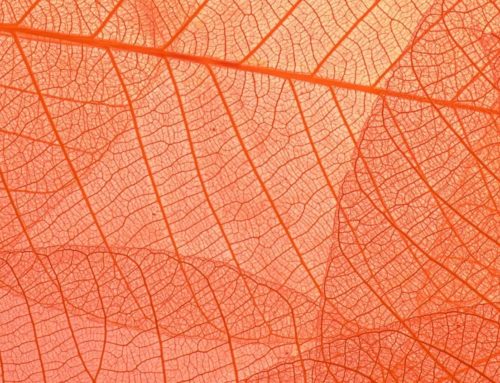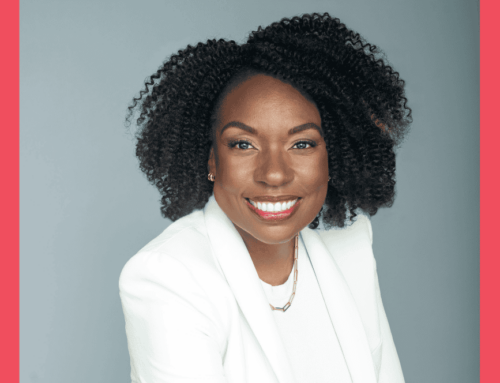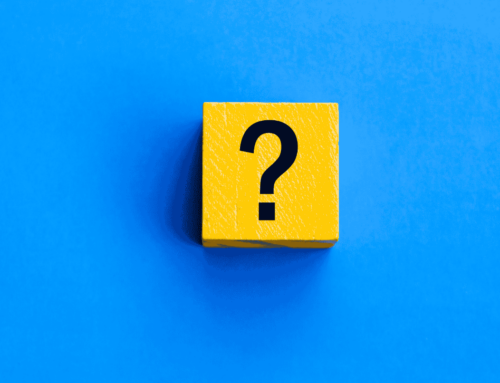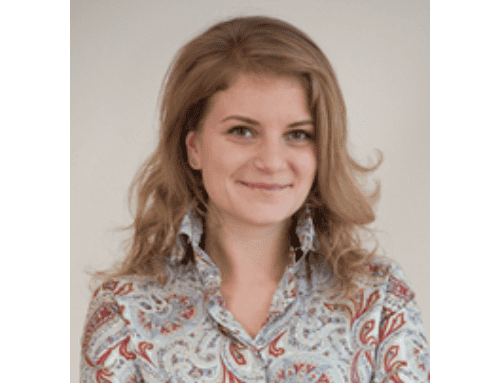Welcome to Signal for Help, a special podcast series from the Canadian Women’s Foundation and award-winning women journalists, Media Girlfriends.
We know that gender-based violence is a problem, and we want to support survivors in our lives, but there’s a lot of stigma and silence around gender-based violence in our society: too many people who experience abuse are shamed, silenced, and stigmatized, and too many people don’t feel confident and competent in supporting them.
Featuring interviews with survivors and experts, we’ll explore how everyday people can better support survivors of gender-based violence.
This podcast includes stories of gender-based violence. Please listen with care.
Listen. Stay open without judgment or advice. Focus on what they need.
These are just a few ways we can better support survivors, as we learn this week from Brandi Morin, a Cree/Iroquois/French award-winning journalist and bestselling author from Treaty 6 territory in Alberta.
Brandi speaks from first-hand experience as a survivor of the Missing and Murdered Indigenous Women and Girls (MMIWG) crisis. As a pre-teen, she was sexually assaulted and held for a week by a group of unknown men. She later recounted her experience to a counselor at her group home only to be met with blame.
Her experience propelled her into a life of writing, bearing witness to others who have suffered trauma. Today, she specializes in sharing Indigenous stories, including her own in her memoir, Our Voice of Fire: A Memoir of a Warrior Rising.
Brandi’s story reminds us how important it is to respond well to disclosures of abuse — so we can avoid more harm and help survivors heal.
Transcript
00:00:03 Nana aba
Hi. This podcast includes stories of gender-based violence, sexual assault, and child abuse. Please listen with care.
Welcome to Signal for Help. I’m Nana aba Duncan.
Now, if you’re here, you already know that gender-based violence is complex. But when I’m telling you that the goal of this show is simple, that’s true. There’s one thing we’re here to do, and that’s learn what to do when someone you know is experiencing abuse. That’s the whole reason why we made this show with the Canadian Women’s Foundation.
Anybody can be abused, anybody. No matter their background, how rich or poor, where you live, what you do. But, Indigenous women and girls are at even higher risk. Indigenous women make up about 5% of all women in Canada. But 21% of all women killed by an intimate partner are Indigenous.
00:01:12 Brandi
When I started covering Missing and Murdered, I realized that I was a survivor of that.
00:01:15 Nana aba
That’s Brandi Morin. She’s an award-winning journalist and author.
She covers breaking news and historic events from the Pope’s trip to Canada to address the Catholic Church’s role in residential schools to the National Inquiry into Missing and Murdered Indigenous Women and Girls in Canada.
Brandi does so much heavy lifting with her reporting. She connects the dots.
For example, over half of all children in foster care are Indigenous, while they only make up 7% of the overall population in Canada. Brandi writes stories connecting the intergenerational trauma of generations of Indigenous kids taken from their families through colonialism and systemic discrimination with the ongoing crisis of Missing and Murdered Indigenous Women, Girls and Two Spirit people. And all this work started with her personal experience, which she’s going to share with you now. And a gentle reminder here that this story includes mention of sexual assault of a child.
So, let’s start with who you are. Can you introduce yourself?
00:02:21 Brandi
Sure. Tansi, Hello, Bonjour. I am Brandi Morin. I am a freelance journalist of Cree, Iroquois, and French descent. I’m based in Treaty 6 territories, which are the lands of my ancestors west of Edmonton in so-called Alberta. I am a mother of four living children from the ages of 23 to age 4, and I absolutely love what I do and consider it a privilege to be a storyteller.
00:02:58 Nana aba
That might be the best introduction I’ve heard in a very long time.
00:03:02 Brandi
Maybe I’m used to it.
00:03:04 Nana aba
Yeah, you’re probably, you’re used to it. I’d like to hear about young Brandi. What did you dream of being and doing with your life back when you were younger?
00:03:13 Brandi
You know, I didn’t have a whole lot of time to think about what I wanted to do when I was older, because the majority of the time I was like living in survival mode. But I was quite a dreamer, nonetheless. I just wanted to grow up and do big things in the world. In fact, for a long time, you know, when I was younger, I wanted to be a famous singer or an actress and I grew up and I, you know, sang in church and that kind of thing. But I think at that time I associated being famous with being liked and being loved. And I think because I didn’t feel like I was loved that I thought that that would be the answer. You know, to what I was looking for.
00:04:09 Nana aba
You mentioned survival mode. What was going on that would make it necessary for you to be in survival mode?
00:04:16 Brandi
I came from a pretty dysfunctional family. My dad was an alcoholic and my mom had a lot of trauma from her own childhood and a lot of anger and frustration towards what was going on with her marriage to my dad. And so, there was a lot of fighting at home, yelling, screaming, verbal abuse, physical abuse happening and just complete chaos and I became too much for my mother to handle, so she told me. It started with me going to live at a couple of homes with families from our church. And then from there turned into my mom handing me over to the foster care system.
00:05:04 Nana aba
How old were you when you entered foster care?
00:05:07 Brandi
Well, I think I was around 7 when I went into my, like, started living with my first family outside of the home. Like a family from church, a couple of families. And then progressed from there. And my first, I guess longer term foster home, I would have been about 10 and I stayed there for a couple of years. Although I went, I would go home maybe every second weekend or so, to visit with my family.
00:05:37 Nana aba
How were you feeling at that time? It must have been pretty emotional.
00:05:41 Brandi
So I know that I was very angry. I know that I was a very lonely little girl and have, like again, very confused little girl. And I always just took on this notion that there was something wrong with me and that I was bad. My mother would say that I was too much to handle, that I was bad. You know, that I was out of control, that I wasn’t listening.
00:06:05 Nana aba
You eventually entered a group home. How old were you at that time? And what was the change like?
00:06:11 Brandi
So, I started being placed into group homes and one of them was what was called the Yellowhead Youth Center and it was in Edmonton. We were just a bunch of lost, kind of messed up kids. There was kids from you know, all walks of life, a mixture of ages. I, again, was still pretty defiant. I think that I just was angry about my, you know, my situation in my life and kind of being displaced from my family. And I formed some friendships and I had a couple of girls there that were older than me. At that time, it is a big deal, like those age gaps at that age, I looked up to them, I thought they were cool.
00:07:04 Nana aba
You also ran away with these folks. Can you tell us what happened?
00:07:08 Brandi
Yeah. So, one night it was a winter’s night, we were outside having a cigarette and I think we had earned the privilege to go off the grounds of the group home. So, we were just like, I think on the sidewalk in front of the home, and we were just talking about how we were bored, and one of my friends named Shannon suggested that we run away. That we take off. And it was known as going AWOL.
I had done it before, I had ran away before from different places. I was sick of all those concrete walls, which were our bedrooms. So we decided, and we took off running, and we ran all the way to downtown Edmonton. Went to an apartment building and Shannon knew these individuals in this apartment.
So, we walked in and the apartment was filled with cigarette smoke and it was very sparsely furnished and I was thinking, Okay, so, you know, this is where the party is right.
There was two men there. One of the men was in the living room smoking a cigarette and another man came up to us and he had a pack of cigarettes, and he was offering us all a smoke. And I was wondering, Okay, like where where’s this party?
And so, this one man asked for me to go into the bedroom with him. And I was 12 years old at this point, and I agreed to go in the bedroom with him. There was a couple of beds in there and he forced himself upon me and raped me and that is how I lost my virginity. And I remember asking, you know, crying out for help and they didn’t come to help me. And I remember being really, really confused by that and after he raped me, he had got up and gone to the bathroom or whatever and not long after that I got up and I went to the bathroom and I heard laughter coming from the living room of this apartment and they were just all, you know, having a good time.
I was upset and you know, I had to take a few moments in that bathroom to pull myself together because I didn’t want to go back out into the living room like hysterical because I was afraid that maybe I would get hurt again or afraid, I don’t know what. So, I put on this act and splashed water on my face and went out into the living room and they were smoking cigarettes and drinking beer. And I just kind of went along with it. And I know it sounds absurd, but you gotta understand, I was 12 years old. I was in an unfamiliar place at night. I had just been raped. I had called out for help. My friends didn’t help me.
And so, I just kind of went into this, this mode of survival and I think that I was gone for about a week. But I know that at some point we were moved to the other side of the city. I was held against my will, but I was able to plan my escape from there and was able to convince these men to let me go and let me go to my grandmother’s, kokum is her name in Cree, and escape.
00:10:55 Nana aba
Brandi, I just wanted to say I’m sorry that that happened to you. I’m sorry to you now. And I’m sorry to the 12-year-old you were.
00:11:02 Brandi
Oh, hye, hye. (thank you, thank you)
So, when I finally reached my kokum’s, I ran out of the car and into her house and just shut the door behind me. I felt like I was safe. I went there and I didn’t tell kokum what happened. I felt a lot of shame and confusion. I was able to stay at her home a couple of days and then she said OK, Brandi because she learned that I had run away, she said you have to go back to the group home. And so, I went back to the group home. I didn’t tell anybody what happened until I did work up the courage to tell one of the workers that I had trusted.
00:11:58 Nana aba
And what did they say?
00:11:59 Brandi
Well, I just went into the office there and told her, you know, what happened. I was really nervous. Again, I had these feelings of shame, of uncertainty, and I just told her, you know, I was raped and she was doing some work, paperwork and she just looked at me and she said, “Well, you know Brandi, that’s what happens when you run away. Don’t do it again.” And so, I took that literally and it confirmed to my 12-year-old mind, that I was right. That I brought it on myself, that it was my fault. And I took that on and I took it on for years and it devastated me because I was already an angry child. But this instilled even more of a rage inside of me.
00:12:55 Nana aba
And do you know now that it wasn’t your fault?
00:12:58 Brandi
Yes, that is something you know that I have been working through over several years, but I didn’t even face it until I was in my 30s and I’m 42 now. It took a lot, it took a lot for me to understand that, yes, it wasn’t my fault.
00:13:18 Nana aba
That worker said, “That’s what you get”, instead of giving you what you needed in that moment and validating your experience in a nonjudgmental way. What do you wish you would have said?
00:13:29 Brandi
I hope that she would have said like, “Oh my God. What can I do to help you? Are you OK?” You know, offer me support, offer me counseling at that age. To this day, even though I have forgiven, I’ve moved on and I think that maybe if I could have been you know, saved from that and really understood my value, that would have been more instilled in me than it could have saved me a lot of heart ache. But at the same time, I have worked through that, and I am, you know, a lot more empowered now.
00:14:27 Nana aba
My understanding is that part of addressing things was your decision to go into journalism and telling people’s stories and using your voice. To be in a way, the voices of others and you know and the ear that you missed out on as a young girl who lived through something so traumatic. How does that work you do play into your healing?
00:14:52 Brandi
I had been, you know, in my late 20s, I was doing a lot of soul searching and really praying about what I should be doing with my life, what would be my purpose. How can I make an impact in this world? And the answer that I got was through journalism.
I was so passionate about being a storyteller. I really, really loved connecting with people and portraying their stories. But you know, especially when it came to injustices. And I think that that’s what I resonated with because I was a person that had experienced injustices.
I started a few years after I got into journalism exclusively telling Indigenous stories. There was this parallel journey that I was going on to discover a lot of the missing links with my own roots and my past and the healing and the intergenerational impacts of a lot of different things. Such as, you know, residential schools and colonization, and a lot of violence that have played out into my own life. I was discovering that as I was covering them. And so it was a really cathartic experience.
So, when I started covering Missing and Murdered, I realized that I was a survivor of that. And that healing journey again coincided with telling the stories of what’s going on with our women and girls. And it, at times, was excruciating, you know, but I was empowered by being a survivor. And I think that people truly need to go back and understand the history of this country, the impacts of colonialism, the all of the intergenerational trauma, the systemic racism, all of the different factors that put our women at risk need to be taken into account rather than putting up a mug shot of a missing Indigenous woman and people making assumptions about them and their life.
00:17:24 Nana aba
Thinking back to not just you, but the people who were around you and other folks who experience gender-based violence, there is a bit of blame that happens. You were talking about it when you were describing how people respond to knowing about Missing and Murdered Indigenous Women. And I wonder what kinds of things do we need to adjust in our thinking?
00:17:49 Brandi
Oh wow. Well, it is never the fault of, you know, a victim who is sexually assaulted or physically assaulted, or emotionally, verbally assaulted. I think that we have come a long way since I was a young girl, but I still think that there’s a lot more work to do for us to understand the ins and outs of consent. For us to understand body sovereignty. For young women and girls to be empowered and to create safety nets. For us to be able to report these injustices, and I mean, I think like again, I think there’s a lot of work, good work being done around that. We just need a lot more education.
00:18:46 Nana aba
We were talking about how responding to somebody without judgment is so crucial when it comes to healing and offering of support. Have you been able to look back and give young Brandi that kind of support like letting go of the shame and the judgment?
00:19:04 Brandi
Yes, I think so. Again, you know it’s a continual process like I think I’ve done a lot of healing, but I think that this is a process that is continual, right. You know, I think that there are times when that trauma as well as others that I associated with my value and my worth as a person, I think that that shows up unconsciously a lot of times and I have to really dig a lot deeper to remind myself of my capabilities of my worth, of my voice. I’m able to recognize a lot of things, but I think that some of those things that impacted me, that impacted my self-esteem, my self-confidence, my, you know, a lot of these things, I think you know it still shows up from time to time. And so, I have to work at it right. I have to continually like remind myself of, you know, you are powerful. You are strong. You are safe. You are worthy.
00:20:13 Nana aba
And, you are.
00:20:14 Brandi
Hye, hye. Thank you.
00:20:28 Nana aba
I think you’ll agree that Brandi’s voice is a gift. And you can read more of her story in her book, Voice of Fire, a Memoir of a Warrior Rising. I am grateful to Brandi for sharing her stories, and I am so glad that she was able to find her path to healing.
We know that experiencing gender-based violence can lead to an increased risk of depression and post-traumatic stress disorder. There’s an even higher risk of physical ailments like cardiac disease and chronic pain. Those kind of wounds can develop over time and can sometimes take years to heal.
But abuse may be hidden and injuries can remain unseen. As a friend, a colleague, a neighbor, if you know what gender-based violence is, that’s a good first step. Because then you can be aware of the signs and react in a way that supports that person.
What are the steps? Listen. Stay open without judgment or advice – like Brandi said she wished someone had done for her when she was a teen. Ask what they need. Brandi’s story reminds us how important it is to respond well to disclosures of abuse. That’s how we can help survivors and not create more harm. Imagine if that worker had told Brandi back when she was still a kid, “it’s not your fault.” Or if they had said, “how can I support you?” Imagine the sense of healing that we can build when we respond with care and a non-judgmental approach.
Now, what if you are experiencing gender-based violence? You can call a shelter just to talk or call a crisis line with questions. You don’t have to move into the shelter or be in an emergency yourself, they’re there to help. Of course, if it is an emergency, you call 911.
I’ve talked about a Signal for Help mini course that you can find online and I highly recommend doing it. I did it. I learned so much. It takes about an hour and it was designed to help us learn the signs of gender-based violence and what to do when we see them. It’s going to make you feel empowered with knowledge. I promise you that one.
You can sign up to be a Signal for Help Responder and join the learning journey. Just go to signalforhelpresponder.ca. After all, when you know how to respond to the signs of abuse, you can change the story. That’s signalforhelpresponder.ca.
Signal for Help is a podcast from the Canadian Women’s Foundation, made by Media Girlfriends.
The producers of this show are Garvia Bailey and Hannah Sung.
Associate producer is Elena Hudgens Lyle.
Post-production is by David Moreau.
And I’m Nana aba Duncan.
Again, if you’re feeling like you need support, go to signalforhelpresponder.ca and click on get help for links to services and information. Take care of yourself and thank you for listening.
This project has been funded by Women and Gender Equality Canada.







